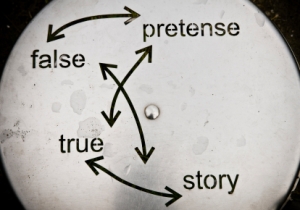A lot can happen in 140 characters. Someone can tag their way right into a lawsuit with a Wall to Wall Message, a public note or a Tweet. This is one of those cases.
Procedural History
 In a defamation case, a Philadelphia attorney (Plaintiff Corcoran) with a boutique copyright practice sued the Executor of the Estate (Defendant McCabe) of one of the Plaintiff’s former clients. Corcoran v. McCabe, 2009 Phila. Ct. Com. Pl. LEXIS 74 (Pa. C.P. 2009).
In a defamation case, a Philadelphia attorney (Plaintiff Corcoran) with a boutique copyright practice sued the Executor of the Estate (Defendant McCabe) of one of the Plaintiff’s former clients. Corcoran v. McCabe, 2009 Phila. Ct. Com. Pl. LEXIS 74 (Pa. C.P. 2009).
The Defendant defaulted on the Plaintiff’s complaint. The Defendant appealed the assessment of $50,000 compensatory damages and $25,000 punitive damages for his defamatory comments. Corcoran, 1.
What Happened? The Case Facts
The Plaintiff attorney was starting a firm that specialized in copyright infringement. Corcoran, 1
In one of the Plaintiff’s cases, he represented a group of local musicians in a suit against Microsoft. Corcoran, 2.
One of the musicians was the Defendant’s brother, who died in 2000. The Defendant acted as his brother’s Executor. Corcoran, 2.
After the Microsoft case settled, the Plaintiff put the settlement funds in his IOLTA account for payment to his clients. Corcoran, 2.
The Plaintiff issued an “Acknowledge Distribution” that stated all the costs in the copyright suit. This statement was given to the Defendant. Corcoran, 2.
The settlement funds could not be distributed to the Defendant Executor until the Estate processed and the state issued an inheritance tax clearance. Corcoran, 2.
The Plaintiff attorney not only explained these issues to the Defendant, he volunteered to help pro bono. The Plaintiff processed the required papers and was waiting for the tax clearance. Corcoran, 2-3.
No Good Deed…
 The Defendant posted the following statement on a MySpace profile on October 22, 2007, with full knowledge of the Plaintiff’s actions on his brother’s behalf:
The Defendant posted the following statement on a MySpace profile on October 22, 2007, with full knowledge of the Plaintiff’s actions on his brother’s behalf:
Bored? Call Connor Corcoran and ask him why Sean McCabe’s share of the settlement went in his pocket. Neither Sean’s family or his estate has received any money. It has been well over a year since suit was settled and the rest of the members received their share. Corcoran, 3.
The posting was reposted on an internet entertainment blog along with the attorney’s phone number. Corcoran, 3.
The tax approval was made on November 29, 2007. Immediately thereafter, the Plaintiff sent the Defendant his brother’s share of the settlement check. Corcoran, 3.
The Plaintiff’s Damages
The Plaintiff had not had any new copyright infringement clients since the Defendant’s October 22, 2007 posting about him “pocketing” his client’s settlement money. Corcoran, 3.
The Court’s Findings
The Court wasted no time saying the Defendant’s actions were defamatory. The Plaintiff Attorney represented both the Defendant’s brother and his Estate properly and acted correctly. Corcoran, 4. The statement was made with no legal right.
The Court quashed the Defendant’s appeal on the procedural grounds because “post trial relief must be filed within ten days of the decision in a case of a trial without a jury.” Corcoran, 4-5.
Social Networking Sites & Defamation
People using social networking sites often express statements that they normally would not state in person. People often “flame” others for political views, status messages and reasons too numerous to name. This will result in litigation originating from 140 characters of “Status message” litigation or “Tag Defamation” only increasing with time.
